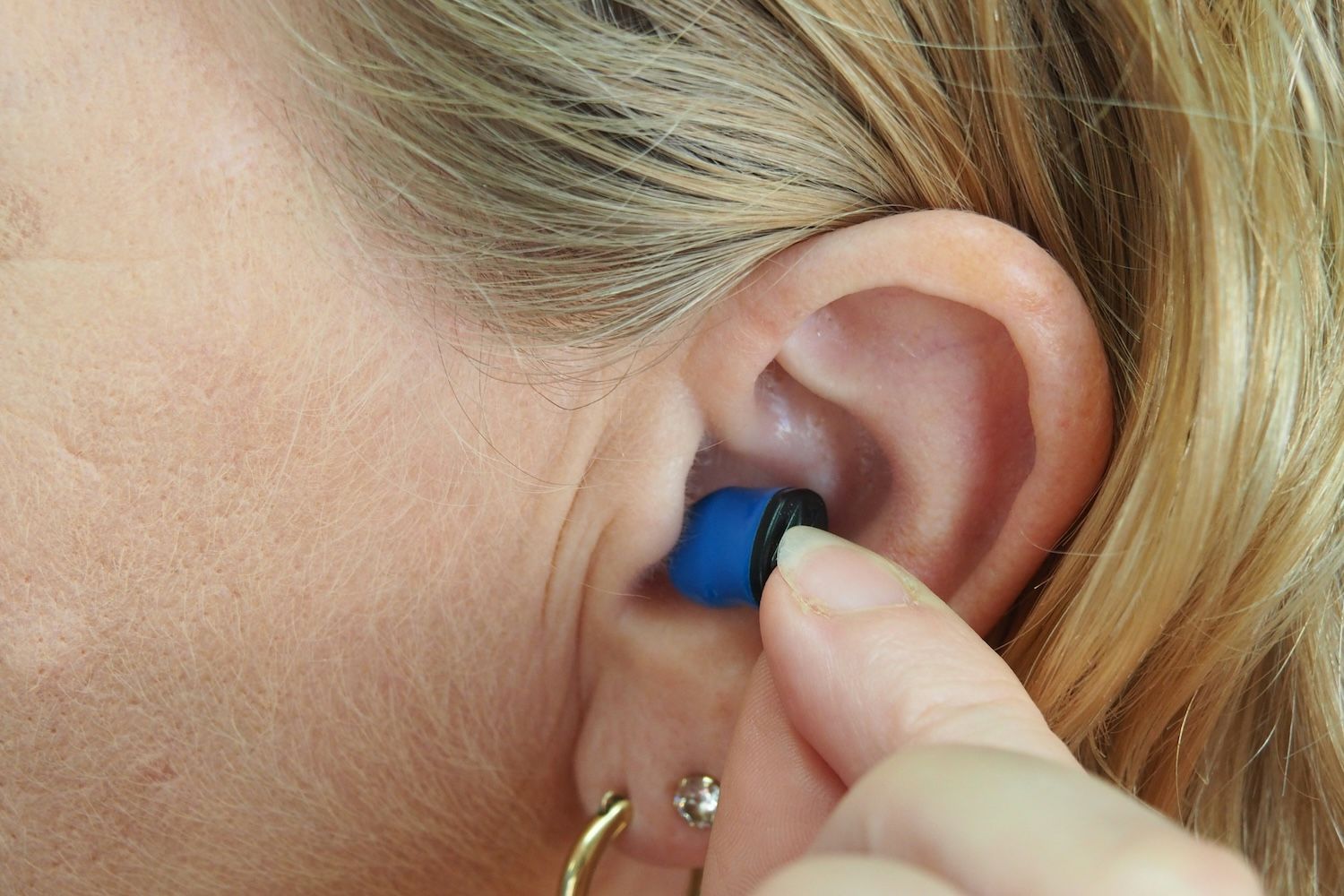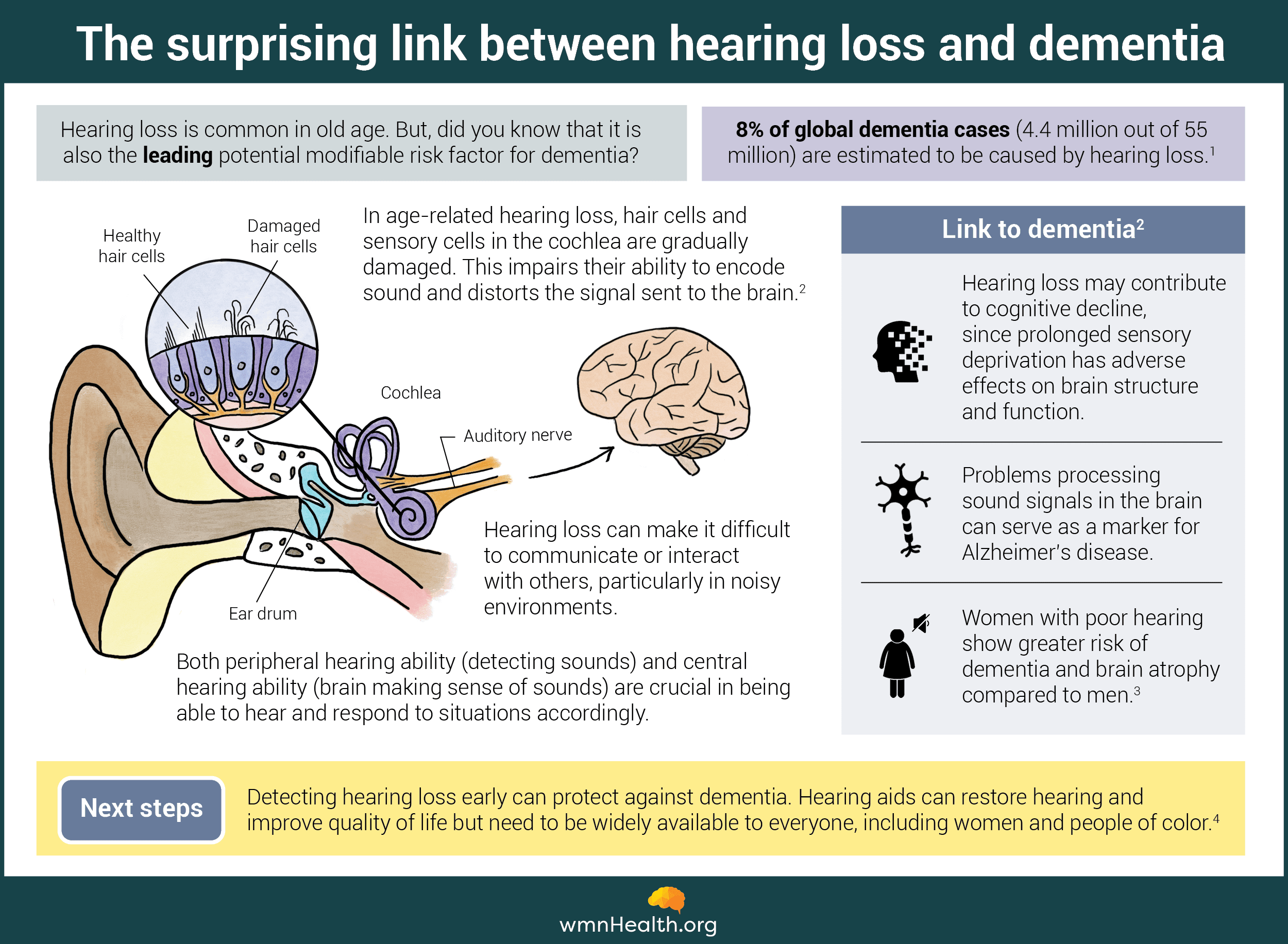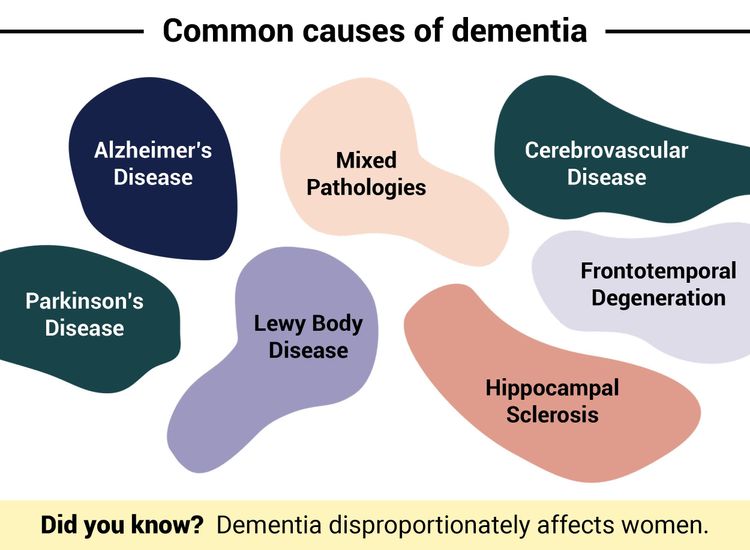
Apr 16, 2024, 4:00 am UTC
4 min
Created by
Q&A: What’s the connection between hearing loss and dementia?
Research suggests females with hearing loss are at a greater risk for dementia than males. The question is, why?
What’s the key to lowering your risk of dementia? Brain health experts have identified 12 modifiable risk factors for dementia, ranging from smoking to social isolation and diabetes to depression. One of the leading modifiable risk factors is hearing loss, which ranked second only to education in a 2020 report by The Lancet Commission: Dementia prevention, intervention, and care.
Hearing loss affects about two-thirds of Americans over 70. Over the past decade, studies have shown that hearing loss doubles the risk of dementia. In people with severe hearing impairment, dementia risk increases five-fold.
Hearing loss doubles the risk of dementia. In people with severe hearing impairment, dementia risk increases five-fold.
The global brain health community is mobilizing in response to these findings because hearing loss is often treatable. With hearing aids and other support, it may be possible to reduce the risk of dementia and prevent or slow cognitive decline.
But there are still many open questions about hearing impairment and dementia—not least, the biological mechanisms connecting the two.
 Megan Fitzhugh, Ph.D.
Megan Fitzhugh, Ph.D.There is also the question of how sex differences come into play.
“The data on an association between hearing loss and dementia is pretty strong. If and how they differ by sex is very limited,” says Megan Fitzhugh, Ph.D., a postdoctoral scholar at the University of California, San Diego, who works with neuroscientist Judy Pa, Ph.D. Fitzhugh and Pa study brain health and Alzheimer’s disease, including the influence of biological sex.
In this Q&A, Fitzhugh shares her research on hearing loss and dementia, including the critical need to understand why women appear to be at greater risk.
This interview has been edited for length and clarity.
wmnHealth: Hearing loss is widely accepted as an important modifiable risk factor for dementia. What’s the evidence supporting this connection?
Megan Fitzhugh: The connection is largely based on association studies. These are studies that ask, if you have hearing loss, and if it’s more progressed, are you more likely to have dementia or Alzheimer’s? The mechanisms behind this association are still unknown and being explored. That's what I'm trying to dig into.
What could be happening to the brain? What are some of the ideas about how hearing loss is linked to dementia?
Fitzhugh: It isn't clear, but there are a few theories. One is that there's something common between hearing loss and Alzheimer's, such as cardiovascular disease affecting the really small vessels that go to the cochlea, as well as the ones that go to the brain.
There are two other theories that I'm leaning my hat into. One is that hearing loss is taking away resources that the brain usually uses to do tasks like communication or complex problem-solving. The other one is the idea that [hearing loss] has direct effects on the brain. It makes sense that reduced auditory input would impact auditory areas of the brain. But everything's really connected. One of the theories I have is that it is impacting memory areas of the brain. There's actually a lot of research done in rodents to support this. Specifically, in rodent models that have some sort of induced hearing loss or even hearing impairment from birth, neurons in the hippocampus, the brain’s memory center, are degraded or their synapses are kind of screwy. Memory performance is equally reduced compared to those animals who are not in that hearing loss model.
 Infographic by Cat Lau. (References below.)
Infographic by Cat Lau. (References below.)So, you’re saying that with hearing loss, your brain has to work harder to process sound, and to do that it may be borrowing resources that support other cognitive functions? Or, it could be that brain changes related to hearing loss spill over into other areas and affect how they work?
Fitzhugh: Right. Either it's detracting from other cognitive functions, or it's affecting the brain regions involved in those other functions, such as the hippocampi. Between those two, I think that's why you're getting these declines in cognitive function with hearing loss, and that, overall, increases your risk for dementia.
What about social isolation? Is there a relationship between hearing loss, social isolation, and dementia?
Fitzhugh: Separate from hearing loss, social isolation is also a risk factor for dementia. Some people have proposed that hearing loss is acting through that mechanism. In other words, you have a hearing loss and become socially isolated, which in turn puts you at risk for dementia. I think that one’s worth talking about as well.
You recently published a paper looking at sex differences in hearing loss and dementia. What did you find—and were there any surprises?
Fitzhugh: Our findings turned out to be super interesting and not in the direction that I expected.
We know that men tend to experience hearing loss earlier in life and it tends to be more severe, at least until the older ages when women seem to catch up. Since the men in the study had experienced hearing loss for a longer period, I expected that they would have an increased risk of dementia. We found that for milder levels of hearing loss, men and women were pretty equal. But at more severe levels, men were significantly different from chance, and women had an even greater increase of dementia risk.
This follows a pattern scientists are seeing for other dementia risk factors: That women seem to be at this increased risk. One reason could be hormones. It’s kind of an easy grab, but women have a lot of hormones and they fluctuate. Maybe something is going on there.
Is there anything known about the effects of sex hormones like estrogen and testosterone on hearing?
Fitzhugh: There is a moderate-size literature on the effects of estrogen and hearing, mostly in animal models, but some in humans as well. Studies tend to show that estrogen is protective. For example, if you expose rodents to a bunch of white noise for a long period, the female animals tend to have less hearing damages compared to the males.
I'm kicking around the idea that maybe the menopause shift—the sudden, drastic loss of estrogen with menopause—not only kickstarts hearing loss in women but also causes it to progress at a much more rapid rate than men. Maybe instead of having this lifelong decline in hearing from their 30s and on, as we see in men, it's more like 50s and on in women, and maybe that rapid decline is having a more detrimental effect on women's brains.
There's even less data on the relationship between hearing and testosterone, but some studies suggest it might be mildly detrimental to hearing.
I think we need to establish a baseline for how sex hormones impact hearing. Only then can we ask, do these hormone differences related to hearing relate to dementia?
Research on hearing loss and dementia is still in its early days, but some organizations are already suggesting hearing aids can mitigate dementia risk.
Fitzhugh: There is one large randomized, controlled clinical trial out of Dr. Frank Lin's group [at Johns Hopkins University] looking at whether hearing aids could reduce cognitive decline older adults. It had mixed results. Hearing aids didn’t help everyone, but they did slow cognitive decline in a smaller group of participants who had a higher risk for cognitive decline. The results suggest that if you have other risk factors, or if you're at a particularly increased risk for dementia, hearing aids may be beneficial for preventing or at least slowing cognitive decline.
Did they find any differences between men and women?
Fitzhugh: I don't think they looked at sex differences at the time. But I wouldn't be surprised if my work or future work by others eventually shows that we might want to target women specifically for hearing aids.
Unfortunately, one of my studies showed that older women were less likely to wear hearing aids. I don’t know if that holds true in other cohorts. But it makes me wonder why. Is there some sort of social phobia? Or maybe women are just not being asked by their doctor if they if they have a hearing loss or if they're just struggling to understand conversation. Maybe there's a point of intervention there around getting more women to use hearing aids, and then hopefully that might prevent or delay their risk for cognitive decline.
Infographic References
- Livingston G, Huntley J, Sommerlad A, Ames D, Ballard C, Banerjee S, Brayne C, Burns A, Cohen-Mansfield J, Cooper C, Costafreda SG, Dias A, Fox N, Gitlin LN, Howard R, Kales HC, Kivimäki M, Larson EB, Ogunniyi A, Orgeta V, Ritchie K, Rockwood K, Sampson EL, Samus Q, Schneider LS, Selbæk G, Teri L, Mukadam N. Dementia prevention, intervention, and care: 2020 report of the Lancet Commission. Lancet. 2020 Aug 8;396(10248):413-446. doi: 10.1016/S0140-6736(20)30367-6. Epub 2020 Jul 30. Erratum in: Lancet. 2023 Sep 30;402(10408):1132.
- Powell DS, Oh ES, Reed NS, Lin FR, Deal JA. Hearing Loss and Cognition: What We Know and Where We Need to Go. Front Aging Neurosci. 2022 Feb 28;13:769405.
- Fitzhugh MC, Pa J. Women with hearing loss show increased dementia risk and brain atrophy. Alzheimers Dement (Amst). 2023 Nov 27;15(4):e12499.
- Reavis KM, Bisgaard N, Canlon B, Dubno JR, Frisina RD, Hertzano R, Humes LE, Mick P, Phillips NA, Pichora-Fuller MK, Shuster B, Singh G. Sex-Linked Biology and Gender-Related Research Is Essential to Advancing Hearing Health. Ear Hear. 2023 Jan-Feb 01;44(1):10-27.


